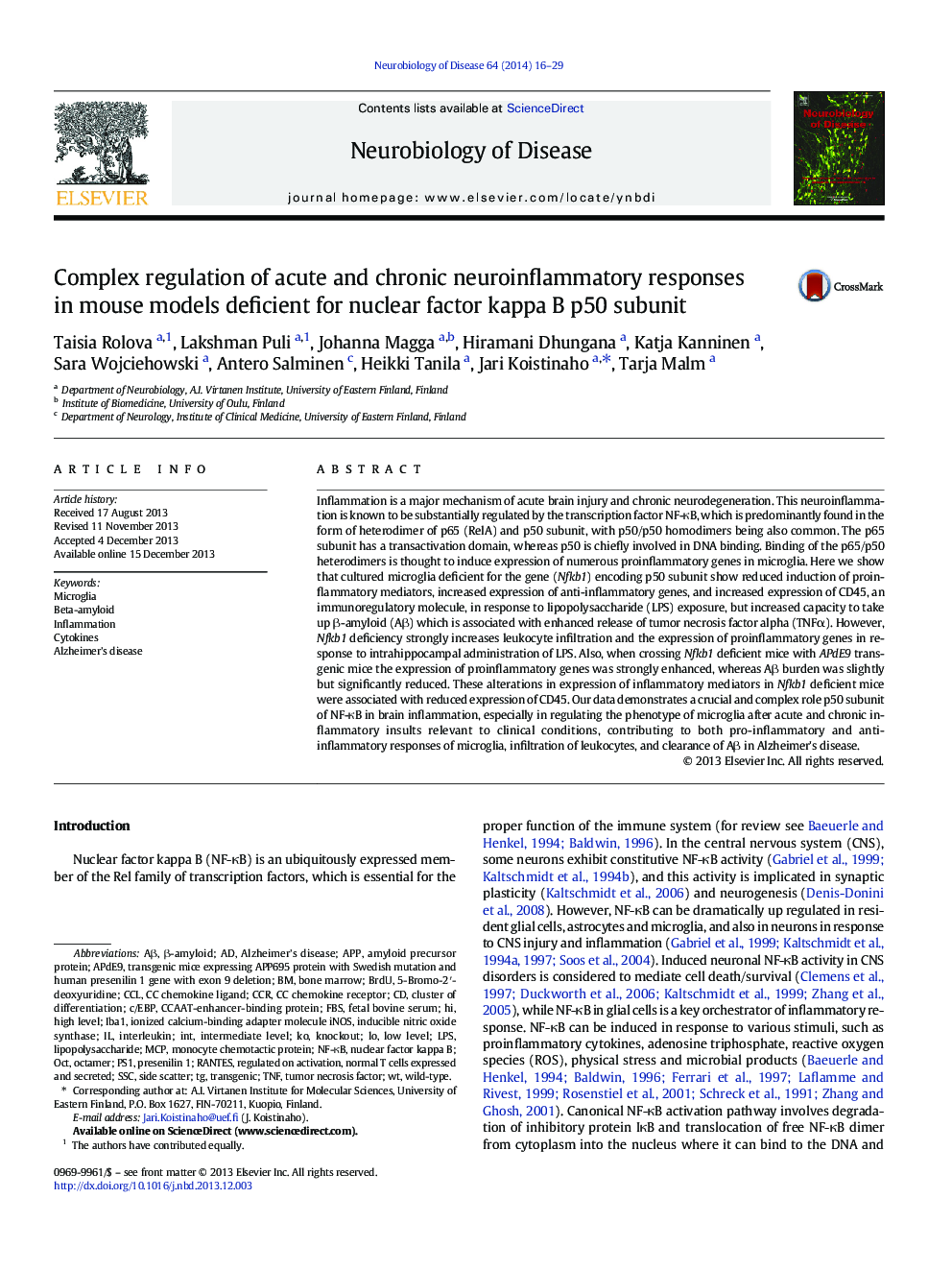| Article ID | Journal | Published Year | Pages | File Type |
|---|---|---|---|---|
| 6021970 | Neurobiology of Disease | 2014 | 14 Pages |
Abstract
Inflammation is a major mechanism of acute brain injury and chronic neurodegeneration. This neuroinflammation is known to be substantially regulated by the transcription factor NF-κB, which is predominantly found in the form of heterodimer of p65 (RelA) and p50 subunit, with p50/p50 homodimers being also common. The p65 subunit has a transactivation domain, whereas p50 is chiefly involved in DNA binding. Binding of the p65/p50 heterodimers is thought to induce expression of numerous proinflammatory genes in microglia. Here we show that cultured microglia deficient for the gene (Nfkb1) encoding p50 subunit show reduced induction of proinflammatory mediators, increased expression of anti-inflammatory genes, and increased expression of CD45, an immunoregulatory molecule, in response to lipopolysaccharide (LPS) exposure, but increased capacity to take up β-amyloid (Aβ) which is associated with enhanced release of tumor necrosis factor alpha (TNFα). However, Nfkb1 deficiency strongly increases leukocyte infiltration and the expression of proinflammatory genes in response to intrahippocampal administration of LPS. Also, when crossing Nfkb1 deficient mice with APdE9 transgenic mice the expression of proinflammatory genes was strongly enhanced, whereas Aβ burden was slightly but significantly reduced. These alterations in expression of inflammatory mediators in Nfkb1 deficient mice were associated with reduced expression of CD45. Our data demonstrates a crucial and complex role p50 subunit of NF-κB in brain inflammation, especially in regulating the phenotype of microglia after acute and chronic inflammatory insults relevant to clinical conditions, contributing to both pro-inflammatory and anti-inflammatory responses of microglia, infiltration of leukocytes, and clearance of Aβ in Alzheimer's disease.
Keywords
regulated on activation, normal T cells expressed and secretedNF-κBintAPPPS1IBA1SSCAβCCLCCRMCPFBSOctamerHigh levelLPSTNF5-bromo-2′-deoxyuridineC/EBPpresenilin 1β-AmyloidinflammationOctinterleukinBeta-amyloidBrdUAlzheimer's diseaseTransgeniccluster of differentiationfetal bovine serumlow levelCytokinestumor necrosis factornuclear factor kappa BlipopolysaccharideCC chemokine ligandRANTESbone marrowMicrogliaknockoutwild-typeside scattermonocyte chemotactic proteinCcaat-enhancer-binding proteinamyloid precursor proteinCC chemokine receptor
Related Topics
Life Sciences
Neuroscience
Neurology
Authors
Taisia Rolova, Lakshman Puli, Johanna Magga, Hiramani Dhungana, Katja Kanninen, Sara Wojciehowski, Antero Salminen, Heikki Tanila, Jari Koistinaho, Tarja Malm,
